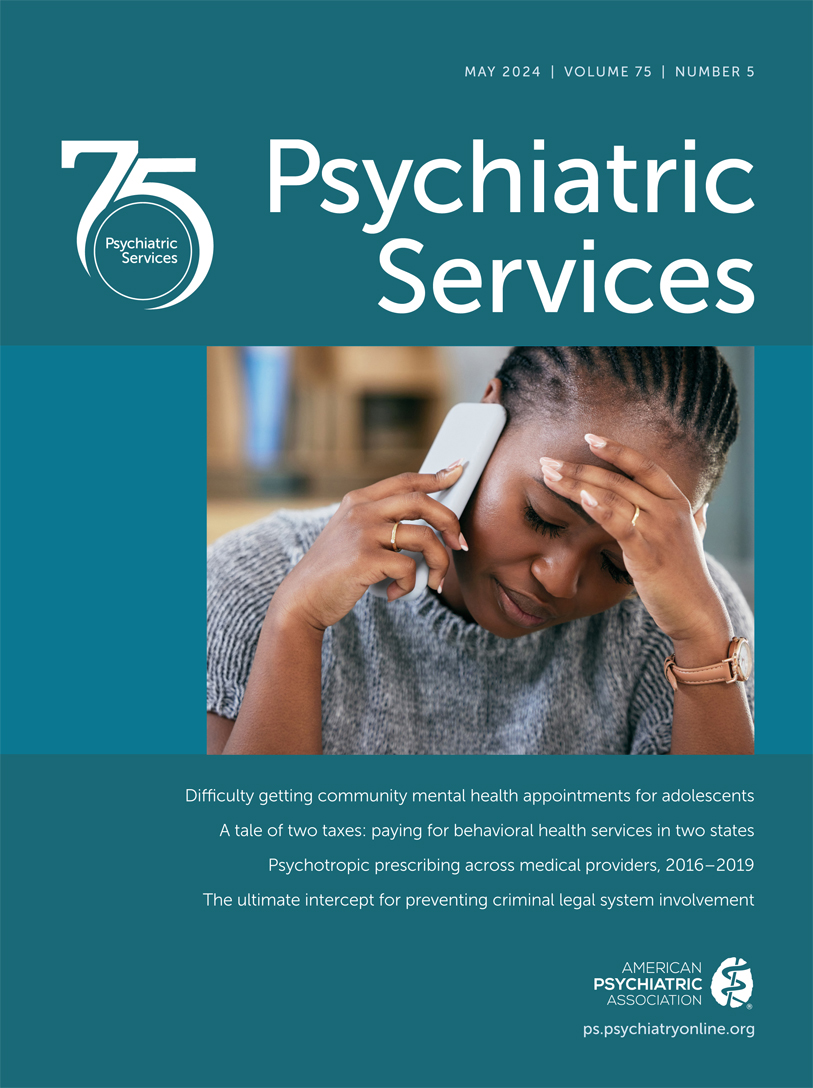Sociodemographic Differences in the Impacts of Video-Enabled Tablets on Psychotherapy Usage Among Veterans
Abstract
Objective:
To examine potential health disparities due to a broad reliance on telehealth during the COVID-19 pandemic, the authors studied the impact of video-enabled tablets provided by the U.S. Department of Veterans Affairs (VA) on psychotherapy usage among rural versus urban, Black versus White, and female versus male veterans.
Methods:
Psychotherapy usage trends before and after onset of the COVID-19 pandemic were examined among veterans with at least one mental health visit in 2019 (63,764 tablet recipients and 1,414,636 nonrecipients). Adjusted difference-in-differences and event study analyses were conducted to compare psychotherapy usage among tablet recipients and nonrecipients (March 15, 2020–December 31, 2021) 10 months before and after tablet issuance. Analyses were stratified by rurality, sex, and race.
Results:
Adjusted analyses demonstrated that tablet receipt was associated with increases in psychotherapy visit frequency in every patient group studied (rural, 27.4%; urban, 24.6%; women, 30.5%; men, 24.4%; Black, 20.8%; White, 28.1%), compared with visits before tablet receipt. Compared with men, women had statistically significant tablet-associated psychotherapy visit increases (video visits, 1.2 per year; all modalities, 1.0 per year).
Conclusions:
VA-issued tablets led to increased psychotherapy usage for all groups examined, with similar increases found for rural versus urban and Black versus White veterans and higher increases for women versus men. Eliminating barriers to Internet access or device ownership may improve mental health care access among underserved or historically disadvantaged populations. VA’s tablet program offers insights to inform policy makers’ and health systems’ efforts to bridge the digital divide.
Access content
To read the fulltext, please use one of the options below to sign in or purchase access.- Personal login
- Institutional Login
- Sign in via OpenAthens
- Register for access
-
Please login/register if you wish to pair your device and check access availability.
Not a subscriber?
PsychiatryOnline subscription options offer access to the DSM-5 library, books, journals, CME, and patient resources. This all-in-one virtual library provides psychiatrists and mental health professionals with key resources for diagnosis, treatment, research, and professional development.
Need more help? PsychiatryOnline Customer Service may be reached by emailing [email protected] or by calling 800-368-5777 (in the U.S.) or 703-907-7322 (outside the U.S.).



